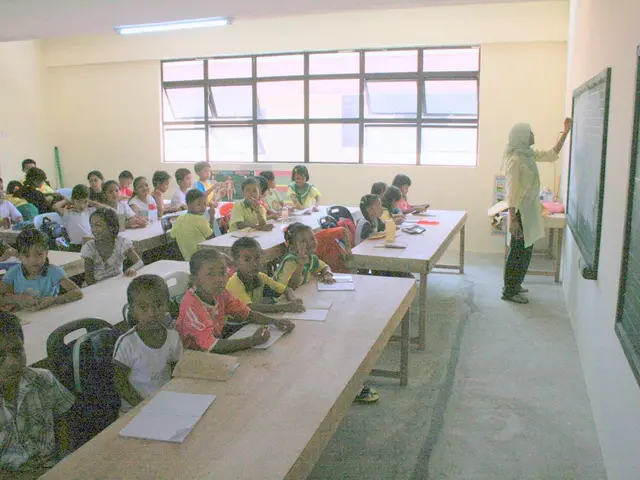Managing Parental Frustration During Pressured Moments: Proven Strategies for Resolution
Parenting can be tough and it's easy to get angry, especially in stressful times. To manage those feelings, it's essential to understand parental anger and its impact on families.
Parenting is a demanding task that often leads to frustration. A study reveals that 85% of parents get angry during tough parenting moments, and 70% argue with their partners about parenting and household chores.
Factors like work stress, financial problems, and disagreements contribute to this anger. But it's important to recognize the signs of anger before they spiral out of control. Notice physical symptoms like a faster heart rate, tense muscles, and feeling frustrated or overwhelmed. Recognizing these early signs helps you act fast and use strategies like deep breathing to calm down. These techniques work for 80% of parents in stressful moments.
Anger can hurt family dynamics, causing tension and poor communication. Uncontrolled anger can deeply affect family life. Many parents yell at their kids, which can harm their emotional and mental health. To prevent outbursts, recognize the emotional responses in parenting and common triggers like work-life balance, disagreements, financial stress, and other pressures.
To create a calm family life, work on managing anger effectively. This involves creating a "calm-down strategy toolkit," which includes anger management techniques, calming strategies, and emotional regulation methods. Make sure the toolkit fits your child's needs and likes. Teaching children coping skills early is beneficial in handling stress effectively.
Managing anger also involves setting clear boundaries and expectations with children. This helps kids learn what's expected of them and avoid confusion. Good communication is essential for setting boundaries and expectations. Being empathetic, open to solutions, and consistent are key elements for effective communication.
Lastly, focusing on self-care, stress reduction, and emotional well-being is vital for staying calm and patient, even when parenting gets tough. Prioritize self-care by getting enough sleep, eating well, and exercising regularly. Mindfulness practices like deep breathing and meditation can help control emotions. Having a support system with friends, family, or a parenting group can also help manage stress and find healthy ways to cope.
By mastering these strategies, parents can create a better environment for their kids and improve their family life. It's important to remember that managing anger is a journey with ups and downs, but with effort and support, it can be achieved.
- Emotional intelligence plays a crucial role in conflict resolution during tough parenting moments, helping parents respond effectively to stress instead of reacting angrily.
- Positive parenting emphasizes emotional intelligence, encouraging parents to model respect and equality, fostering a healthier family lifestyle and relationships.
- Consistency in parenting is essential for maintaining boundaries, teaching children what is expected, and promoting a sense of security in children's mental health and development.
- Science has shown that setting clear boundaries and expectations not only promotes positive parenting but also improves relationships within the family and encouraging children's education and self-development.
- An essential part of effective communication in parenting includes understanding and being empathetic towards one another, helping resolve conflicts and strengthening the overall family dynamic.
- Health-and-wellness practices, such as mindfulness, meditation, and exercise, are vital for managing stress and maintaining emotional well-being during challenging parenting times, ensuring a more positive and balanced family life.
- Seeking support from friends, family, or parenting groups can be an invaluable resource for managing anger and stress, ultimately working towards constructive conflict resolution and a harmonious family lifestyle.








